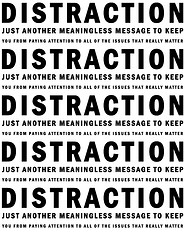I wasn’t planning on expanding on my last post, but I just found myself inspired.
When I say inspired, I’m talking about my work in progress, which is a science fiction novel. I met my self-imposed deadline, and finished Part I just before the new addition to the family arrived, working under the assumption that I would only have to time to edit for about a month after she was born, if I had time to do that. So far, I’ve squeezed out about an hour to tackle some editing, only to discover just how enormously monumental a task this is going to be.
When I say “rough draft,” I didn’t realize just how rough it is.
Tonight, though, I was finishing playing catch-up on Haven, which I blogged about at the beginning of the week. This season has ended with some excellent plot twists that I just didn’t see coming. I respect the writing a great deal, and I’m very much anticipating next season (we had to wait for season 2 after a cliffhanger, and they’re using the same approach between seasons 2 and 3).
I remember these sorts of plot twists in Heroes, as well…back in its first two seasons when it was still an excellent program. Unfortunately, it didn’t survive the writer’s strike, but the show was known for outstanding and inventive teasers and plot twists that kept you hooked from week to week. In that way, it left me in mind of the comic books to which it paid homage.
And, since those comic books inform my own work in progress, I’m wondering if that specific type of foreshadowing and twisting is even possible outside of a serial. That is, since I’m writing a novel, I wonder if its possible to include that in a novel’s format? Certainly, there are writers of various genres that have reputations for keeping the reader guessing as to what’s really going on. Yet, when I think of the great writers of speculative fiction…the Asimovs and Henleins…I don’t really see these types of plot twists in their work.
Not that I’m thinking that I could even possibly be at the level of those writers. I’m just inspired with these sorts of surprises in story arcs, and I’m left wanting to re-visit the ideas that I formulated for the second half of my work in progress. My concern with this project from the beginning has been that the plot is interesting, but not gripping. I’m inspired to explore the possibility of twisting the plot around a bit. Yet, I don’t want to impose something onto the story that doesn’t belong there. That is, I don’t want to try to make it something its not, but I don’t want to hold it back from reaching its potential, either.
Decisions, decisions. And that, of course, is assuming I have to time to explore any of this any time soon as I’m busy exploring my new role as “daddy.” Here’s to the weekend!



